GE14 | Murmurs of discontent have been heard across the Malay heartlands of the west coast states of Peninsular Malaysia, which are traditionally BN strongholds, as the campaign period for the 14th general election comes to a close.
If voters translate this discontent at the ballot box, the wave of protest votes against BN will start from the south, in Johor, but with less intensity moving northwards.
The overriding issue has been the cost of living and, particularly for Umno members turning against their own party, its president Najib Abdul Razak's unpopularity.
1MDB is rarely heard on the lips of these voters but it has had an indirect impact on Najib's reputation.
Former prime minister Dr Mahathir Mohamad's position as head of Pakatan Harapan too has been less of an election issue for voters making their decision. Instead, his main role was to galvanise the opposition coalition, after the split with PAS, into a viable alternative to BN.
However, a wave of revolt against BN does not guarantee Harapan sweeping into power.
In states where PAS has substantial strength or Harapan's state leadership is perceived to be weak, the swing against BN is split between the two opposition blocs to varying degrees.
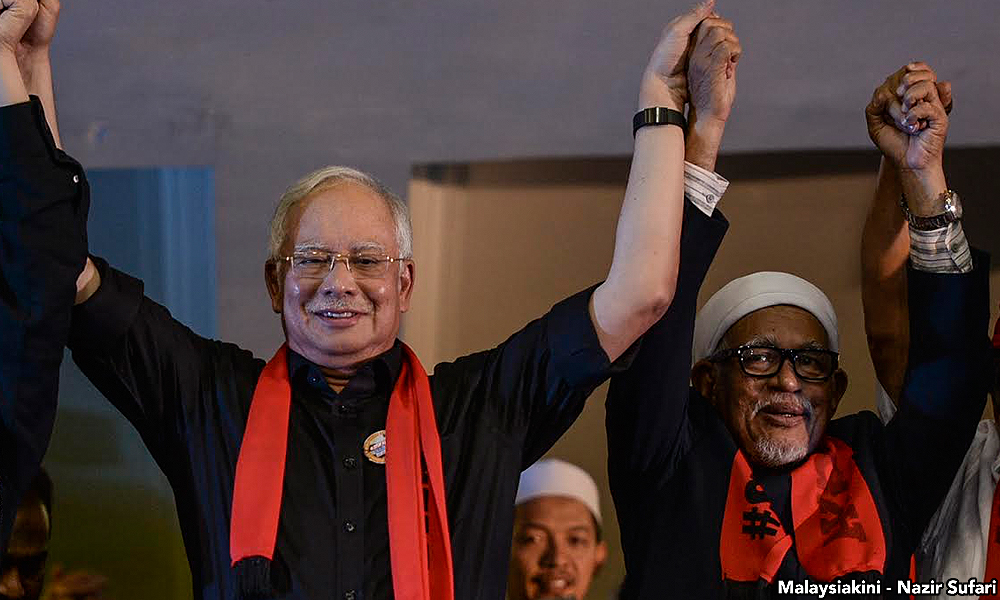
PAS contesting in a large part of the country and Najib's overtures to the Islamist party have proven to be a masterstroke, without which the BN would have been assured a disastrous defeat.
Johor may be hit hard
In Johor, particularly greater Johor Bahru where BN controls four out of the six parliamentary seats, a noticeable number of voters in BN strongholds were willing to openly declare that they intended to switch to Harapan, while many were also wavering.
A 23-year-old hotel worker in Pulai, who did not want to be named, said her father had previously registered her as an Umno member, but now refuses to vote for Umno.
"I asked my dad and friends to vote for BN but most of them are refusing. Some of my friends even curse Najib. Most of them can't stand the high cost of living. I'm confused and don't know how to vote," she told Malaysiakini.
In more rural parts of Johor, there is a clear generational divide in BN strongholds, where the elderly remain staunchly with BN, their children are wavering in their support for the ruling coalition.
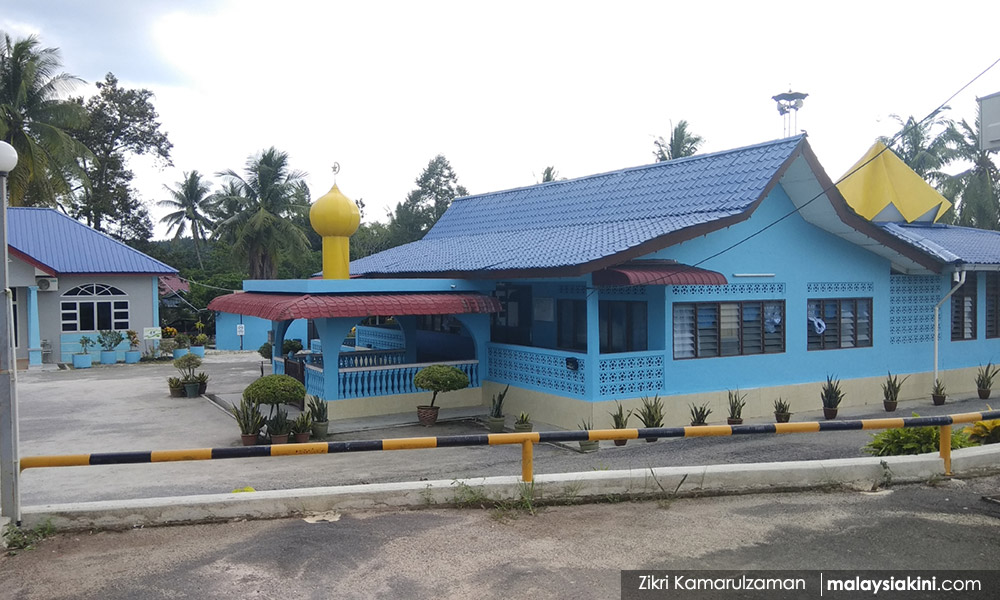
In the sparsely populated parit (trenches) of Semarang in central Johor, octogenarian Abdullah Imoh said he would stick with BN, no matter how tough the situation was, as there was no way it could be worse than World War II, which he lived through.
But a younger local, Yusman Rahman, 36, complained that his friends were no longer staunch supporters of BN and have refused to help put up the party's flags like they did in the past.
In Felda areas, there is also a geographical divide, with revolt arising among those living close town centres.
In Felda Chempelak, where many travel to Labis or Segamat town for supplies, 64-year-old Yaakob Md Noor, who was initially reluctant to speak, vented his frustrations, stating that he still loved Umno but is now disillusioned with its leadership.
"We think there needs to be a change, although we still love (BN)," Yaakob said, claiming many are also in the same boat as him.
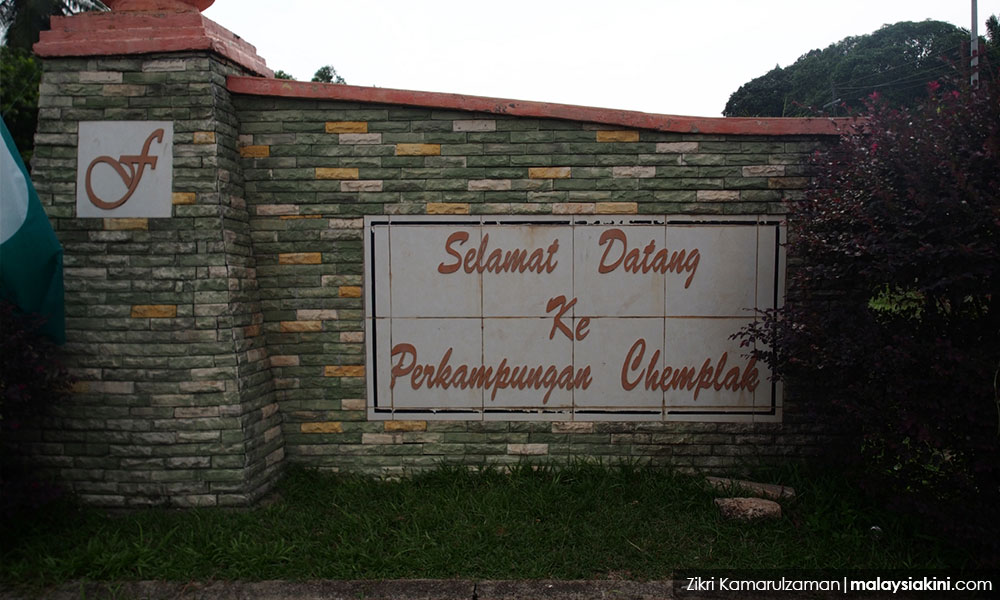
In the last election, 87.1 percent of the Felda Chempelak voters chose BN at the parliamentary level.
But in Felda Palong Timur, which is isolated from town and is completely self-sustaining – with its own petrol station and soon, its own medical centre – they remain staunch BN backers.
BN, at the parliamentary level, won a staggering 92 percent of the 3,193 votes there in the last general election.
The general Malay revolt could have a significant impact on BN in Johor, where 11 out of the 21 parliamentary seats the ruling coalition won in the last general election were with majorities of less than 6,000 votes. Only the east coast of Johor remains an impenetrable BN fortress.
A high threshold in Malacca
In Malacca, voters in BN's rural stronghold were less willing to openly declare their preference, but their frustration was showing. The same generational divide is also present.
One example was 44-year-old Mohd Khairul Tajuddin, who after being denied welfare, is struggling to care for his sickly mother-in-law who had voted BN all her life – and would continue to do so.
Asked about his own stance in this general election, Khairul was coy and wanted to talk more about the problems he was facing, revealing a laundry list of grouses.
“I remember when I first started work, with a salary of only RM1,600 a month, I could survive on that. But now, I earn RM3,000 a month and I am struggling,” he said.
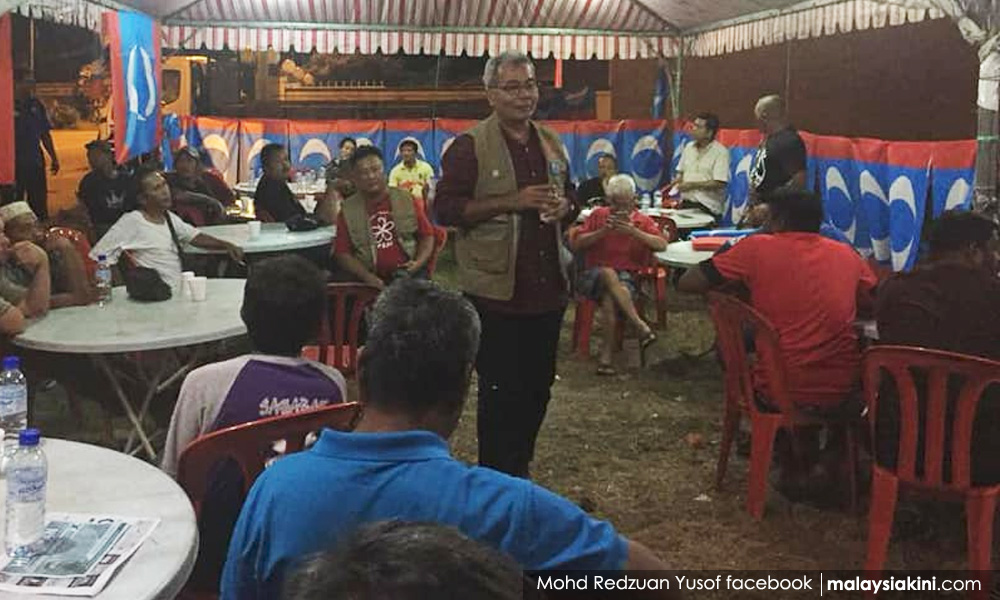
This was in the polling district of Melaka Pindah, where BN won 69.7 percent of the 17,366 votes at the parliamentary level in the last general election.
In semi-urban areas like Taman Tun Rahah, the defection of BN supporters was more apparent.
“We cannot give (our votes) to them (BN) anymore. We don’t want to pay for GST anymore. No more,” said 60-year-old bank worker Anwar Md Nor, who had voted BN all his life.
BN won its four Malacca parliamentary seats by a landslide, with majorities of more than 10,000 votes in the last general election – which can only be undone if there is a huge wave of protest votes.
However, Harapan may pick up some new state seats that were previously not on the opposition's radar.
Negri's Felda generational tussle
In Negeri Sembilan, where the former menteri besar Mohd Isa Mohd Samad presided over a tumultuous time at Felda, support from many of BN's youth members has eroded, including in the Felda heartlands.
Several youths who spoke to Malaysiakini in Felda Pasoh 1 said they voted for BN in the last general election, but would vote for Harapan in this election. Of the 1,638 voters in this polling district, 79.3 percent voted for BN in the last general election.
"Last time I voted BN, there was no GST... Now we're under pressure from GST, rising fuel price, rising prices of goods. It's also hard to get a loan," said a 38-year-old lorry driver who only wanted to be known as Aiman.
Aiman was on the way to a ceramah to see former minister Rais Yatim stump for Harapan with seven other friends, most of whom were switching from BN to Harapan.
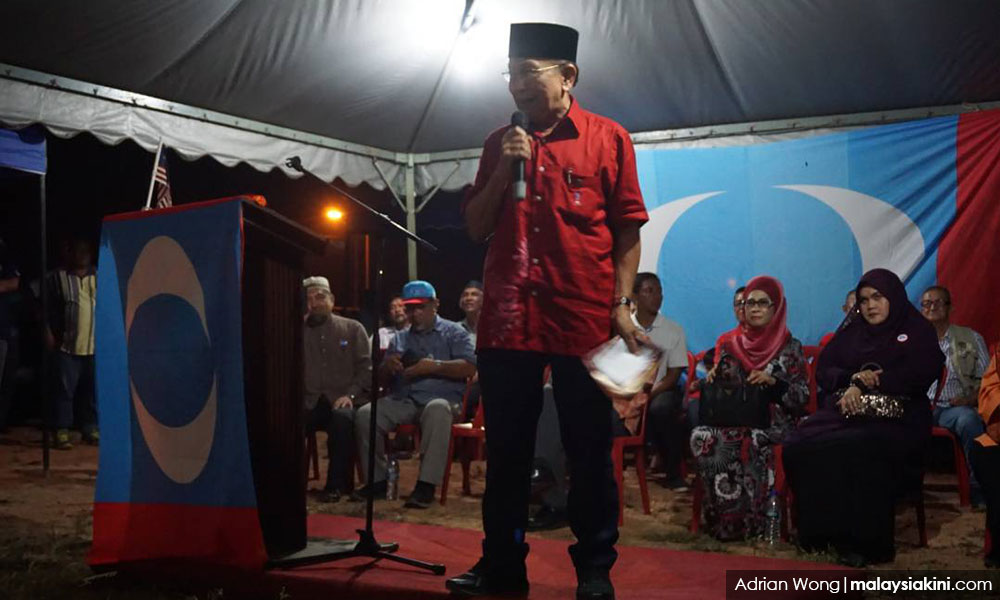
However, Aiman said he had a hard time convincing his parents to switch from BN. "They fear if the opposition wins, Chinese will rule the country," he said. Aiman's friends too had similar stories to tell.
Many elderly people who Malaysiakini spoke to were hardcore BN supporters, and some ticked off the youths for wanting change.
"Last time, life was hard, we had to eat kangkung and porridge. We had to fight for food.
"Now, the youths want houses, cars, big salaries, but refuse to pay taxes. That's why they want change but if there is no tax, how are we going to develop?" said a 68-year-old resident, who insisted that his family would vote for BN.
Harapan lacks prominent Malay leaders in Negeri Sembilan and had also been plagued by infighting. However, Rais' last-minute campaigning for the coalition has helped boost its morale.
BN won its five parliamentary seats in Negeri Sembilan comfortably in the last general election but three were under 10,000 vote majorities, the most vulnerable is Jelebu, which was won with a 7,101-vote majority.
However, at the state level, Harapan only needs to pick up five more state seats in the 36-seat state assembly to capture power, and a significant swing among Malay youths could bring the opposition close to the finishing line.
Harapan's Malay leadership in Perak
While PAS is generally weak in the southern states, its strength picks up in Perak and strengthens northwards.
In a straw poll at Felda Gunung Besout 1, Tanjung Malim, many say they will stay with BN but a significant number who wanted to switch was also split between Harapan and PAS.
"I do not support BN as I do not see much change from them, but I also do not trust DAP and Mahathir, so I will vote PAS this time," said a 36-year-old who only wanted to be referred to as Zainal. Another PAS voter said he would also stick with the Islamist party.
However, two second-generation Felda voters said they would switch from BN to Harapan in this general election due to the rising cost of living that they suffered.
At the parliamentary level, BN won 70.6 percent of the 2,439 votes in Felda Gunung Besout 1 during the last general election.
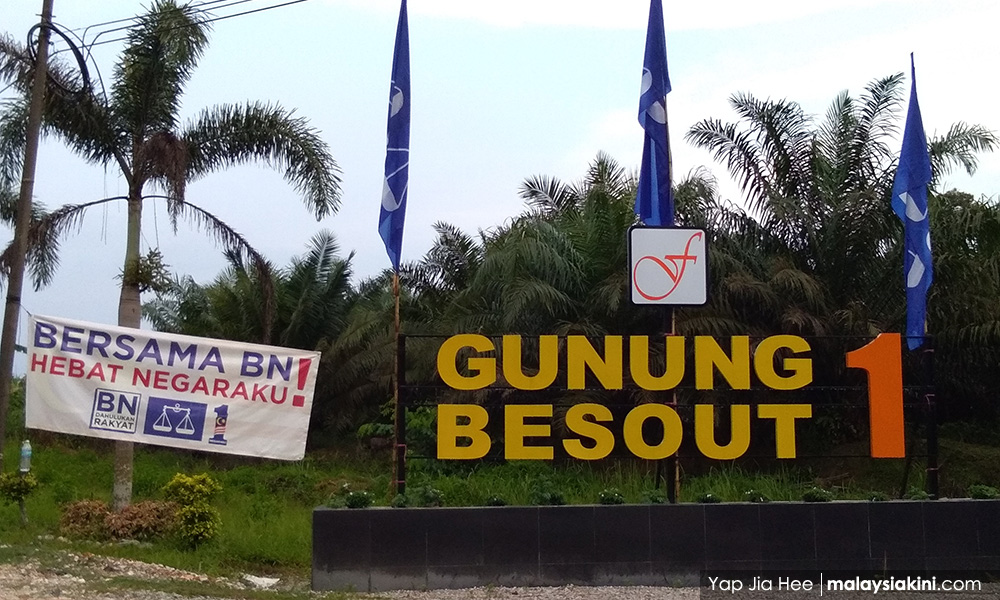
In another BN stronghold of Kampung Layang-layang Kanan, within the parliamentary constituency of Parit, many say they will remain with the ruling coalition but some former BN voters, who are now angry, said they may spoil their votes.
For voters in BN strongholds, the uncertainty due to a lack of a Malay menteri besar candidate, that ensued after Harapan's predecessor Pakatan Rakyat captured the state briefly in 2008, is still fresh on their minds. The idea of DAP getting the menteri besar position also intimidates them.
In short, rumblings of discontent are present in Perak BN strongholds, but Harapan's lack of a strong Malay leadership in the state means it can't fully capitalise on it.
All 12 of the parliamentary seats BN won in Perak were under an 8,000-vote majority, five of which were won under a 4,000-vote majority.
At the state level, the opposition was only two seats short of forming the state government in the last general election, but it now must make do without PAS, which had won five state seats.
The marginal nature at the state and parliamentary levels mean that even a moderate revolt could leave many BN seats vulnerable to Harapan, but the latter must first overcome PAS, which is unlikely to win many seats in Perak but is still capable of playing spoiler.
In Pahang, the home state of Najib, a couple of BN seats may be threatened, including that of MCA president Liow Tiong Lai (Bentong) but the state is expected to remain in BN's hold.
Three-player games in Kedah
In Kedah, the issues affecting the switching of voter support between PAS and Harapan are along the lines of Islam, cooperation with Umno and the viability of forming the government, while BN losing voters largely revolved around the Mukhriz-Mahathir factor, Najib's unpopularity and rising cost of living.
While PAS can be written off in the southern states and could be a spoiler in Perak, it is a formidable force in Kedah, a state which it had captured in 2008, albeit with help from PKR and DAP.
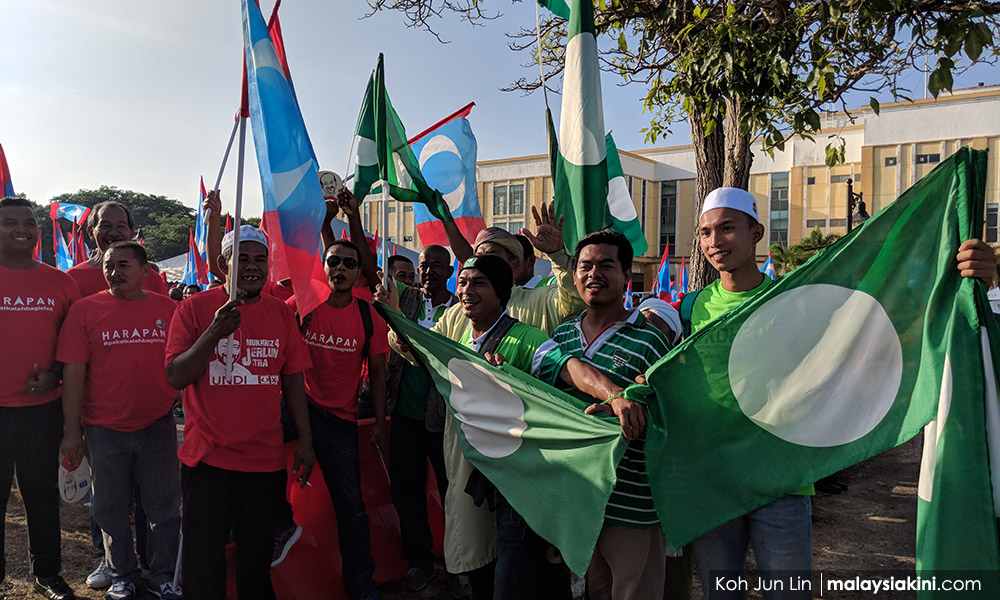
Kedah also has a vast network of sekolah pondok (religious schools), which are controlled by PAS, assuring it a core support.
One such supporter is 48-year-old businessperson Zakri Said, who said most of those in his village of Kampung Sungai Baru in Pendang would stick with PAS. Like many others, Zakri is also upset at GST and allegations about Najib's family.
The village is located within the polling district of Junun, which PAS won with 68.8 percent of the 1,797 votes cast in the last general election, but it is unclear how much of this proportion was contributed by its former allies.
Zakri admitted that claims of PAS working with Umno had caused a split among PAS supporters, but he believes that PAS has adequately dispelled doubts.
Some, however, have abandoned PAS for Harapan, like 32-year-old farmer Hadi, who said: "PAS supports Umno and if we vote PAS, it is not as if they can win (Putrajaya)." Hadi also cited economic hardship for his decision.
But Hadi, who hails from Kampung Belat, Pendang, said some older voters have adamantly remained with PAS. Likewise, there are also elderly voters who remain hardcore BN supporters but younger ones have begun to defect to either Harapan or PAS.
Odd job worker Mohd Nazmi, 32, said he would split his vote, choosing Harapan at the state level and PAS at the federal level.
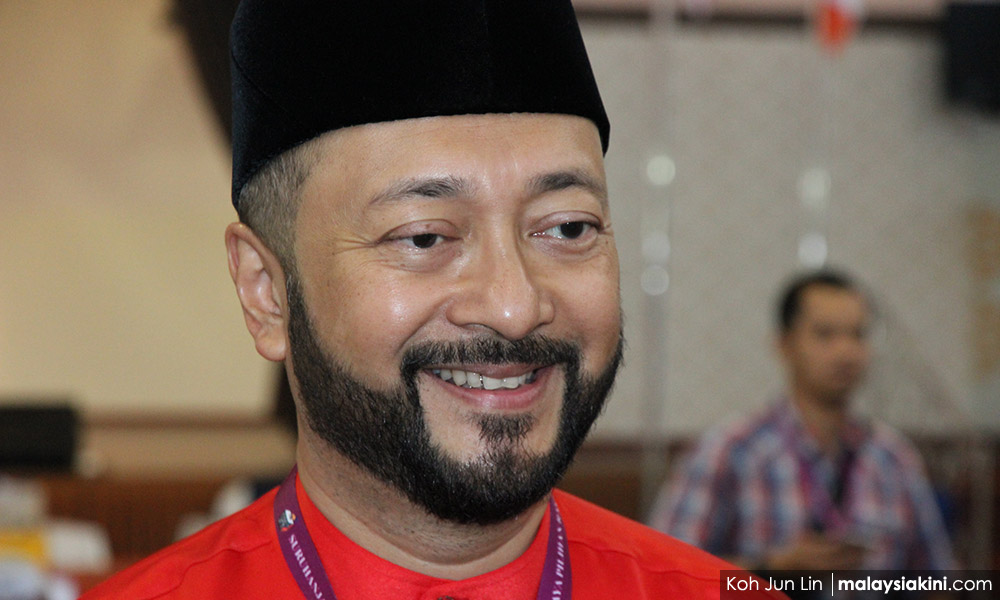
Meanwhile, a campaigner in his 30s, who spoke on condition of anonymity said he was campaigning for BN, but would vote for Harapan due to Bersatu deputy president Mukhriz Mahathir's leadership as Kedah menteri besar before he was ousted in 2016.
"I dare not say... I think you can understand, from the way I am speaking, perhaps it'll be Harapan... Mukhriz was a very good menteri besar.
"Many of my friends who are campaigning (for BN) are also doing it as a favour to the candidate, not to convince voters," he said.
Mahathir has also lent his weight to Harapan in Kedah, which his son Mukhriz leads, by contesting in Langkawi.
A wounded BN in Kedah has benefitted both Harapan and PAS but the scenario has created a three-way stalemate, which will ultimately be broken by fence-sitting Malay voters and non-Malay voters.
In Perlis, which only comprises three parliamentary seats, there are some signs of revolt, but BN is expected to weather the storm.
Harapan states and the East Coast states
In Selangor, the strong core support for Harapan is expected to help maintain the coalition as the state government, but the coalition has sought to mitigate PAS' impact, which could cost Harapan some marginal Malay-majority seats.
Notably, Mahathir capped off his visit to Selangor last Sunday with a more than 10,000-strong rally in Gombak, which is a PAS stronghold in the state.
In Penang, a Chinese-majority state, the strong anti-establishment sentiment will see Harapan win the state comfortably.
In Terengganu, Harapan had been struggling from the very beginning of the campaign period, with its nomination day crowds being dwarfed by both BN and PAS supporters.
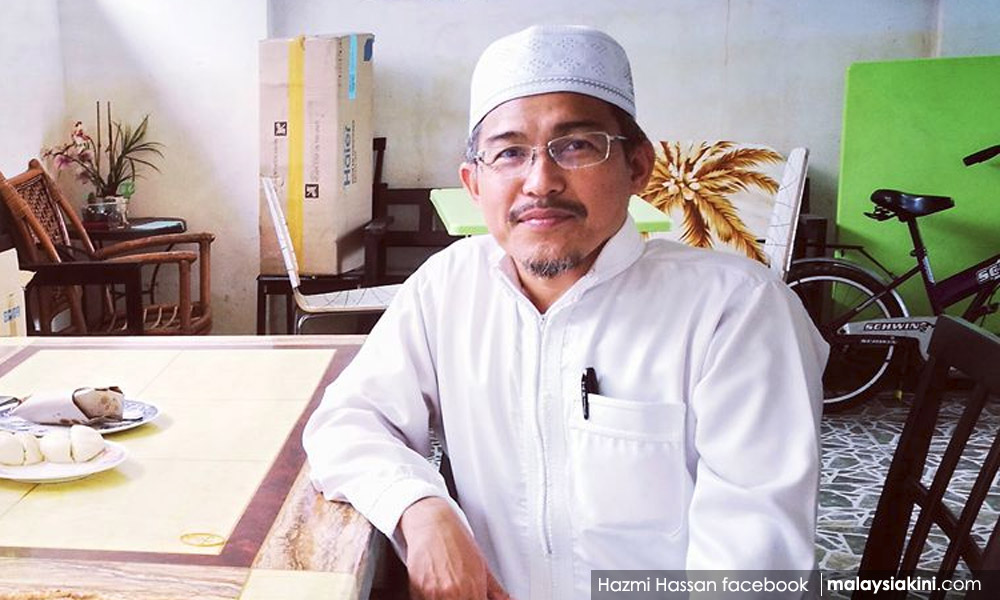
Likewise, in Kelantan, Harapan was the underdog to PAS and BN, but with Nik Omar Nik Abdul Aziz coming out for Harapan, and being named as its Kelantan menteri besar candidate, this has boosted the coalition.
This also caused a panic in PAS, which mobilised its machinery to attack Nik Omar, the son of the late PAS spiritual leader Nik Abdul Aziz Nik Mat, who is revered in the Muslim community.
Facing PAS' power of incumbency, Harapan is relying on Nik Omar as its trump card, as well as on the return of outstation voters to vote.
Even if these factors are big enough to create a dent on PAS, but not enough to carry Harapan through the finishing line, BN could end up benefiting.
On the wider front, the turnout, particularly of outstation and young voters, will also play a significant role in the outcome of this 14th general election.

